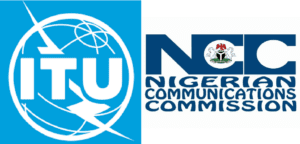


NCC urges collaboration to mitigate risks ahead of 6G deployment
The Nigerian Communication Commission (NCC) on Tuesday called for collaboration, innovation and proactive action to mitigate emerging risks ahead of 6G deployment.
Dr Aminu Maida, the Executive Vice Chairman of NCC, said this during a two-day Telecoms Industry Risk Management conference, held in Lagos with the theme, “Evolution and Future Risk Management in the Telecoms Industry: Harnessing Emerging Technologies and Trends.”
Aminu, who was represented by Mr Ubale Maska, Executive Commissioner, Technical Services, NCC said taking proactive measures ahead of the introduction of 6G would ensure seamless integration of the technology.
He explained that to navigate this dynamic environment, the need for effective risk management was increasingly paramount.
“Today, we stand at the crossroads of tradition and transformation, where emerging technologies and trends present both unprecedented opportunities and challenges.
“While we discuss the current landscape of 5G networks, which boast of wider attack surface due to the increased number of connected devices and denser network infrastructure, it is imperative to even cast our gaze into the future.
“We are witnessing the dawn of 6G technology, the next frontier in wireless communication.
“With promises of even faster speeds, lower latency, and groundbreaking applications, 6G has the potential to revolutionise the way we experience connectivity,” Aminu said.
He, however, said with this advancement came the responsibility to address new risks from cybersecurity threats.
Aminu explained that the prospect of 7G technology also loomed on the horizon.
“As we contemplate the possibilities, it is essential to acknowledge that with each generational leap, one faces not only technological advancements but also a fresh set of challenges.
“Anticipating and managing risks associated with 6G and 7G will require collaboration, innovation and a proactive approach.
“In addition to the evolution of connectivity, we must consider the implications of emerging technologies such as quantum technologies (computing, sensing, and communications), advanced artificial intelligence, and blockchain (distributed ledger) technologies.
“These trends, when harnessed effectively, hold the potential to transform our industry positively. However, they also introduce complexities that demand careful consideration in our risk management strategies,” he noted.
The NCC boss said the commission remained committed to fostering an environment that encouraged innovation while prioritising security and stability of the telecoms infrastructure.
“As we navigate through 5G and the uncharted territory of the next generations of wireless technologies, collaborative efforts among regulators and industry players become even more crucial for sharing best practices and implementing robust risk management strategies.
“We should, therefore, move beyond mere compliance and reactive measures, and instead, harness the power of these new technologies and trends to build a resilient and future-proof industry,” Aminu said.
According to him, building a culture of risk awareness is paramount.
He noted that as an industry, it was necessary to empower people with the knowledge and skills to proactively identify, report risks, embed security awareness and risk management practices in business processes.
He added that emerging technologies such as AI should be leveraged to generate data-driven insights needed to predict, detect and respond to risks in real-time.
Also, the Head of Corporate Planning, Strategies and Risk Management, NCC, Mr Kelechi Nwankwo, said the fast-disruptive world of the telecoms industry had witnessed convergence of diverse technological advancements with the potential of reshaping the future.
He, however, said with great opportunities came great risks, adding that it was the collective responsibility of stakeholders to address the risks and possibly safeguard the industry’s growth and sustainability.



